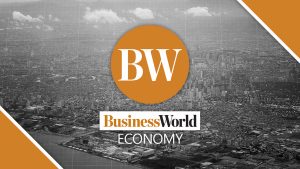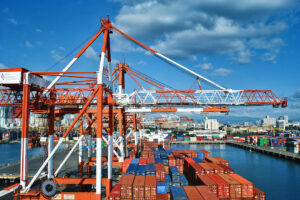Lawmaker calls for relaxation of biofuel requirement to ease oil prices

THE GOVERNMENT should provide P5.19 billion in fuel subsidies to the transport, farm and fisheries sectors in the next three months to avert runaway inflation that could hit 6.2% this year amid spiraling global crude prices, the chairman of the House of Representatives Ways and Means Committee said.
In a memo to House Speaker Ferdinand Martin G. Romualdez, Albay Rep. Jose Ma. Clemente S. Salceda also proposed the reduction of the biofuel requirement for gasoline to 5% to reduce prices by as much as P1.03 a liter.
To address the spike in pump prices, he said the government should implement fuel discounts for the transport, farm and fisheries sectors to prevent second-round effects.
“An increase in fuel prices, however, would have second-round effects on inflation. Historically, a P10 increase in fuel prices results in a one-percentage-point increase in overall consumer price index (CPI),” he added.
Inflation quickened for the first time in seven months to 5.3% in August, due to rising fuel and food costs.
If fuel and rice prices continue to increase, Mr. Salceda noted inflation could average 6.2% this year. This would be higher than the Bangko Sentral ng Pilipinas’ 5.6% full-year projection.
Mr. Salceda estimated that P907 million would be needed to provide fuel discounts for 180,000 jeepneys or P5,040 per driver until the end of the year. He also proposed giving a subsidy of P2,800 per hectare for farmers, which would require a P3.36-billion budget; and a subsidy of P420 for a fisherman, which would need a P924-million budget.
Mr. Salceda, who is also chair of the Ways and Means Committee, said the funds for the fuel subsidies could come from value-added tax (VAT) collection from diesel and gasoline, which are projected to be at least P9.3 billion higher than its target.
The Commission on Elections also said it would exempt the distribution of fuel subsidy from the spending ban currently in place for the village and youth council election, Chairman George Erwin M. Garcia told reporters.
At the same time, Mr. Salceda suggested that the National Biofuels Board lower domestic bioethanol additive requirement to 5% from the current 10% under the Biofuels Law.
“The additive makes pump price more expensive because current domestic bioethanol is P84.11 per liter, above the gasoline pump price. Relaxing the requirement could also increase mileage, as bioethanol contains 30% less energy than pure gasoline. The reduction will result in an outright reduction of per liter price by P1.03, and total savings (due to mileage) of P3.05 per liter,” he said.
The lawmaker also proposed a flexible excise tax regime for fuel products.
“Automatic reduction of excise tax by P3 when the 3-month average Means of Platts Singapore (MOPS) index of prices exceeds $80 and increases the excise tax by P2 when the same is lower than $45,” Mr. Salceda said.
House leaders have proposed the temporary suspension of fuel taxes to address rising pump prices.
However, Mr. Salceda said that suspending fuel excise taxes can only be done if Congress amends the Tax Reform for Acceleration and Inclusion law.
Finance Secretary Benjamin E. Diokno on Tuesday warned that the government may lose up to P37 billion in revenues in the fourth quarter if it suspended collection of VAT and excise tax on petroleum products.
“Removing — or even simply suspending — taxes invariably raises disposable income. Cutting taxes puts more money in everyone’s pocket, enabling them to buy more goods and services, ultimately stimulating the economy,” Terry L. Ridon, convenor of think tank InfraWatch PH, said in a statement. — Beatriz Marie D. Cruz




